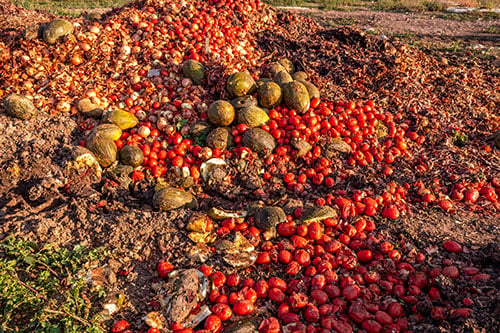UN report: the world is wasting over 1 billion tons of food every year; foodservice is responsible for 28% of that

The world is wasting 1.05 billion tons of food a year, amounting to 132 kilograms per capita and almost one-fifth of all food available to consumers. The foodservice industry is responsible for 28 percent of this waste.
Those were some of the findings of the UN Environment Programme’s Food Waste Index Report 2024, which calculated food waste for the most recent year data is available, 2022.
The UNEP Food Waste Index Report 2024, co-authored with WRAP, provides the most accurate global estimate on food waste at retail and consumer levels. It provides guidance for countries on improving data collection and suggests best practices in moving from measuring to reducing food waste.
“Food waste is a global tragedy. Millions will go hungry today as food is wasted across the world,” said Inger Andersen, Executive Director of UNEP. “Not only is this a major development issue, but the impacts of such unnecessary waste are causing substantial costs to the climate and nature. The good news is we know if countries prioritize this issue, they can significantly reverse food loss and waste, reduce climate impacts and economic losses, and accelerate progress on global goals.”
According to recent data, food loss and waste generates 8-10 percent of annual global greenhouse gas emissions – almost 5 times that of the aviation sector – and significant biodiversity loss by taking up the equivalent of almost a third of the world’s agricultural land. The toll of both food loss and waste on the global economy is estimated at roughly USD 1 trillion.
“With the huge cost to the environment, society, and global economies caused by food waste, we need greater coordinated action across continents and supply chains. We support UNEP in calling for more G20 countries to measure food waste and work towards [UN Sustainable Development Goal 12.3, to cut global food waste in half by 20203],” said Harriet Lamb, CEO of WRAP. “This is critical to ensuring food feeds people, not landfills. Public-Private Partnerships are one key tool delivering results today, but they require support: whether philanthropic, business, or governmental, actors must rally behind programs addressing the enormous impact wasting food has on food security, our climate, and our wallets.”
